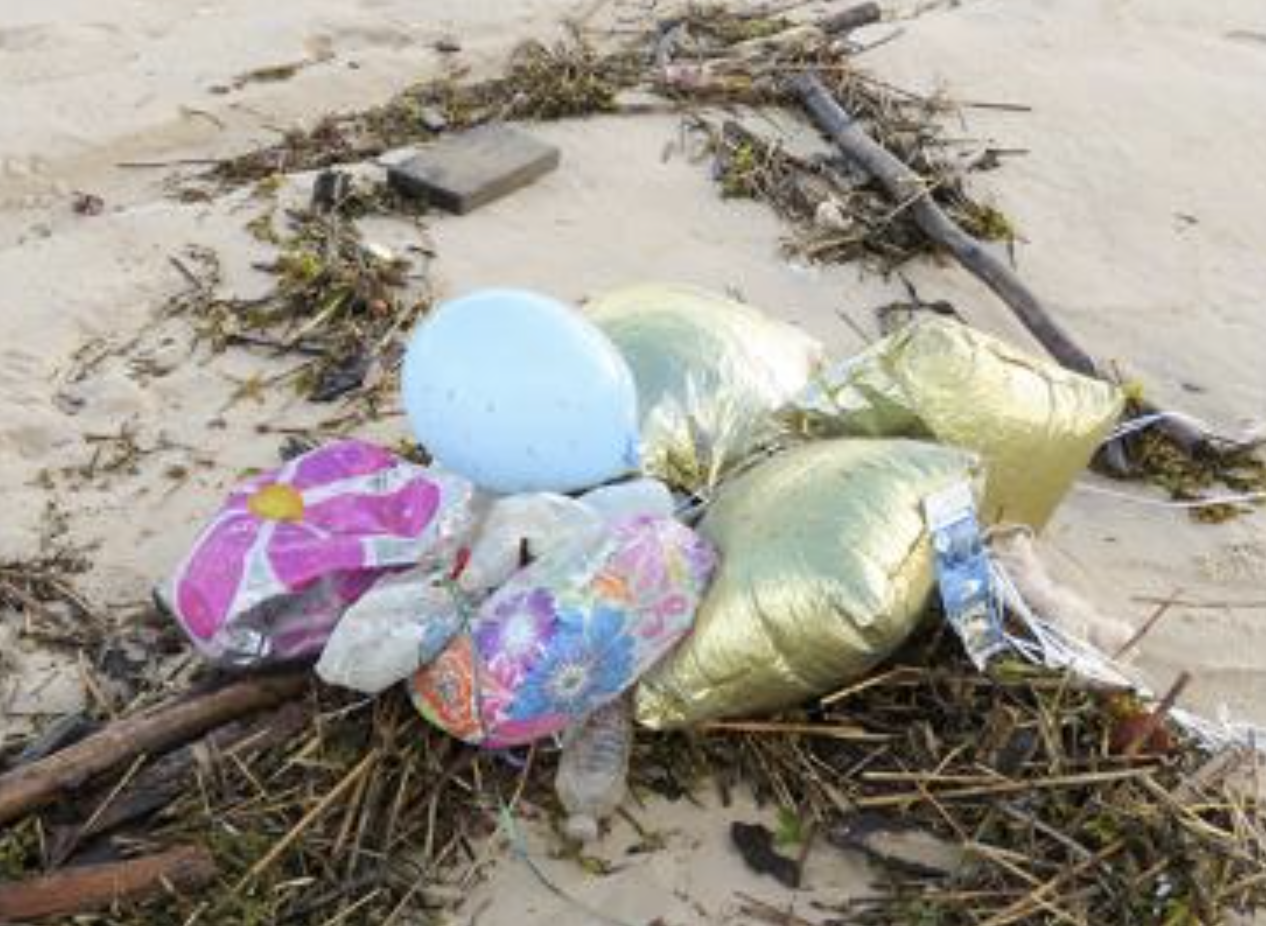Governor David Ige signed HB1102 into law yesterday. Act 141 bans the intentional release of balloons throughout the State of Hawai`i.
This is the strongest measure banning balloon releases signed into law so far in the U.S.A. Maryland’s legislature passed a similar law this year but it still has to be signed. Other laws in the U.S.A. allow for the release of up to a set number of balloons such as 25, 50 or 100 or they have a loophole allowing for “biodegradable” balloons. Virginia’s new law also signed yesterday has that loophole. Hawai`i’s law does not have any loopholes, nor does it allow a certain number of balloons to be released.
Worldwide the only other place that has completely banned the intentional release of balloons besides Hawai`i is the Sunshine Coast in Queensland, Australia.
Starting on 1st January, 2023, all intentional releases of balloons in Hawai`i will be banned with the exception of hot air balloons, balloons released indoors and remaining indoors, and balloons released by the government for scientific or meteorological purposes. Fines for violators who release, organize, or cause the release of balloons are $500 per offense.
Beach Environmental Awareness Campaign Hawaiʻi (B.E.A.C.H.) initiated the bill which was introduced in the House by Speaker Scott Saiki and in the Senate by Senators Rhoads and Gabbard.
“We are very grateful to Governor Ige, Speaker Saiki, Senator Gabbard, Senator Rhoads and all the lawmakers who helped this important and necessary bill succeed in becoming law. Reducing plastic marine debris is critical to the survival of Hawai’i`s marine life and this law will prevent one of the most lethal types of debris,” said co-founder of B.E.A.C.H. Suzanne Frazer.
Sea turtles, albatrosses and other marine life that eat squid and jellyfish can mistake balloons in the ocean for food. This is due to the tentacle like appearance of the plastic ribbons and the balloons which undergo brittle fracture in the air when they burst. When ingested, balloons become sticky and gooey and are impossible for an animal or bird to move through their digestive system. Blockages of the gastro-intestinal tract caused by balloons leads the animal or bird to starve to death.The plastic ribbons attached to balloons are also a danger as they can cause injury or death to marine life that become entangled in them or ingest them.
Balloon releases have been responsible for causing power outages in Hawai`i affecting thousands of residents. In April this year, more than 2000 people lost power in the Mililani and Waipahu areas due to balloons entangled in powerlines.
Balloons are filled with helium which is a rare gas on earth. Helium is essential for use in scientific and medical applications for example it is used to cool MRI machines. There may only be a little over 100 years of helium left on earth. Using helium in balloons is extremely wasteful.
As well as being wasteful, releasing balloons is an act of littering.
There are many other non-lethal ways to celebrate or commemorate such as creating a garden, tree planting, giving lei or lighting candles. B.E.A.C.H. has found that balloon litter on beaches increases particularly around May and June which is graduation time.
Mass balloon releases have also occured in Hawai`i. For example, on World Ocean Day (June 8th) last year, more than 2000 yellow and black balloons were released at Nanakuli Beach Park.
Although the law will not begin for another 18 months, B.E.A.C.H. hopes that in the meantime, with the passage of Act 141, more people will become aware of the harm that balloons cause to marine animals and birds and will choose to celebrate or commemorate loved ones in non-harmful ways instead of littering balloons into the air.
“In taking this responsible action to ban all balloon releases, Hawai`i has set a wonderful example for the world to follow,” said Frazer.
B.E.A.C.H. collected over 1500 signatures from people across Hawai`i in support of state action on marine debris including banning balloon releases. The petition was presented to the Environmental committees in the Senate and House as well as Governor Ige. B.E.A.C.H. is an all volunteer, non-profit organization that brings awareness and solutions to plastic marine debris.


